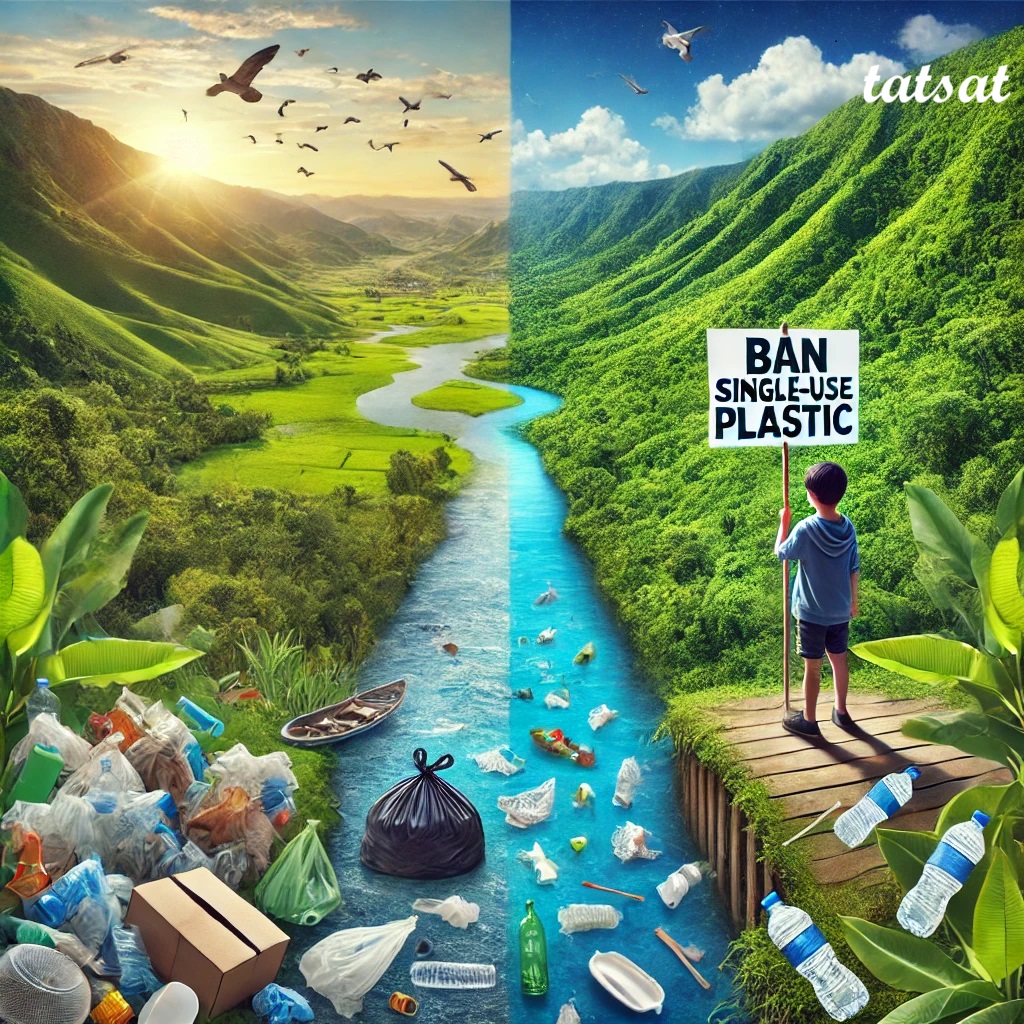Why allow your family to suffer for the greed of a few? Why let future generations choke under plastic pollution? Why not support a noble cause for a cleaner environment? These are simple yet profound questions that every Indian needs to consider when evaluating the ban on single-use plastic.
The Environmental and Social Costs of Single-Use Plastic
Plastic has permeated all aspects of our daily lives, providing convenience and increasing product availability. Yet, this convenience comes at a devastating cost. The widespread use of plastic has led to the degradation of the environment, undermining our connection to Mother Nature. By indulging in plastic products, we compromise our children’s future and the world they will inherit.
India’s Single-Use Plastic Consumption: A Sobering Reality
By 2020, India was estimated to consume 28 billion kilograms of plastic, with 12 billion kilograms being single-use plastic. These figures highlight the magnitude of the issue. Recycling even a fraction of this waste would require handling 32 lakh kilograms of plastic per hour, an almost impossible task given India’s current waste management infrastructure. Even the most optimistic measures outlined in the Plastic Waste Management Rules (2016) are inadequate to address this challenge.
The Struggles of Managing Plastic Waste
The process of recycling plastic involves much more than just collection. It requires segregation, processing, washing, and decontamination. Not all plastic is recyclable, especially multi-layered plastics often used in snack packaging, which pose higher recycling costs. India’s existing municipal solid waste management system is already under immense pressure, and plastic waste adds to the burden.
The Glaring Truth: India’s Inefficient Plastic Waste Management
According to the TERI Fact Sheet, in 2014, the Central Pollution Control Board (CPCB) reported that 80.28% of plastic waste was collected. However, only 28.40% was treated, leaving vast amounts of plastic to end up in landfills, rivers, and oceans. This level of inefficiency highlights the urgency of a ban on single-use plastic to prevent further environmental damage.
Why a Ban on Single-Use Plastics Is the Best Solution
A blanket ban on single-use plastic is essential for solving nearly 40% of India’s plastic pollution problem. This ban would allow for better management of the remaining 60%, ensuring more time and resources to focus on sustainable solutions. To ensure effectiveness, this ban must be comprehensive—regardless of the thickness of plastic.
Practical Alternatives to Single-Use Plastics
Eco-friendly alternatives, such as earthen pots and doona pattals, offer solutions for replacing plastic in everyday life. From groceries to takeaway foods, these biodegradable options can effectively reduce plastic consumption. We don’t need an elaborate plan—simply reducing dependency on single-use plastics in our daily lives can create a significant impact.
India’s Legacy: A Call to Action
Why India Must Support the Ban on Single-Use Plastics for a Sustainable FutureIndia has always been a nation that honors the natural world. We can draw upon our rich heritage, rooted in the philosophy of Vasudhaiva Kutumbakam (the world is one family), to lead the charge in environmental sustainability. By supporting the ban on single-use plastics, India can set an example for the world, showcasing that sustainable living is possible through unity and collective action.




Fair topic!
* Balloon free parties may be one of the initiatives.
Rwanda is a shining example!